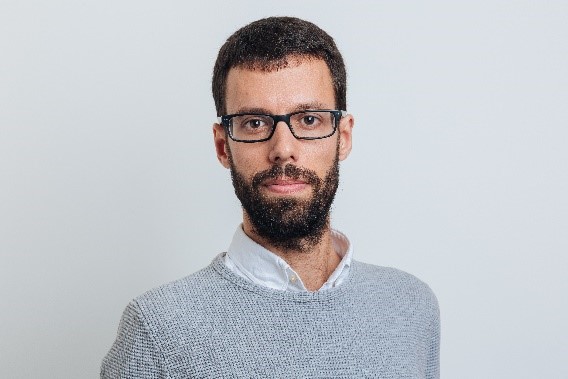Exceptional Bristol researcher awarded Turing AI Fellowship to deliver world-class AI research
New Delhi: Bristol researcher Dr Raul Santos-Rodriguez is one of 15 UK researchers awarded prestigious Turing AI fellowships to develop cutting-edge Artificial Intelligence (AI) technologies.
Named after AI pioneer Alan Turing, the fellowships are supported by a £20million government investment from UK Research and Innovation’s (UKRI) Engineering and Physical Sciences Research Council (EPSRC), in partnership with the Department for Business Energy and Industrial Strategy, Office for AI and the Alan Turing Institute. The fellows will develop novel AI techniques that could have wide-ranging impact, for example through combatting cancer, developing digital twins that can aid us in modelling and understanding air pollution and improving cybersecurity through developing more robust and transparent AI algorithms.
Dr Santos-Rodriguez’s fellowship will focus on machine learning, in particular annotations — the process of labelling data to educate machines so they can detect patterns in medical data, identify objects in images or recommend products in online platforms.
Labels are the simplest forms of annotation and indicate whether a medical image is of a tumor or not, whether a song belongs to rock or classical music, or which activity of daily living is being performed in a video.
However, in general we do not know how or when the annotations were collected or what their inherent biases are. Additionally, there are now forms of annotation beyond standard static sets of labels that call for a formalisation and redefinition of the annotation concept.
Dr Santos-Rodriguez’s team will design and establish protocols for transparent annotations that empower the data curator to accurately report on the process, the AI practitioner to automatically evaluate the value of annotations and the end-user to provide the most informative and actionable feedback.
The overarching aim of this work is to establish novel approaches for the interaction in between humans and AI systems in order to build trust and transparency while making the learning process more efficient. In particular, the fellowship will focus on developing methods for humans to provide informative and actionable feedback in order to shape the behaviour of AI systems, allowing humans in return to fully understand and measure the effect of their contribution.
The fellowship will cater for users across multiple fields, including health, IT, engineering, and social media. For example, together with clinicians from the intensive care unit at the University Hospitals Bristol and Weston, novel tools for tailoring decision support systems through rich annotations that accurately reflect clinician’s needs and expertise will be co-created — changing the mindset from the current practice of clinicians being the ones that adjust to the way that AI systems work.
Dr Santos-Rodriguez, Senior Lecturer in Data Science and Intelligent Systems in Bristol’s Department of Engineering Maths explained: “A great deal of scientific and engineering ingenuity around the world goes into the creation of AI systems. However, we are already and increasingly surrounded by systems that strongly rely on annotations that are not traceable and whose quality is difficult to assess. But what if we could find ways not to just learn from those annotations but to use them as a way for humans and machines to interact in more meaningful ways? We hope to show that this is not just a viable option but holds great promise to transform current AI research such that we end up with robust and trustworthy systems.”
Science Minister, Amanda Solloway said: “The UK is the birthplace of artificial intelligence and we therefore have a duty to equip the next generation of Alan Turings, like Bristol’s Dr Raul Santos-Rodriguez, with the tools that will keep the UK at the forefront of this remarkable technological innovation.
“Bristol is a hotbed for innovation and the inspiring AI project we are backing today will help support the UK’s leading clinicians when treating patients, potentially saving lives and changing the way we live and work, while cementing the UK’s status as a world leader in AI and data.”
The Turing AI Acceleration Fellowships will accelerate and support the careers of a diverse cadre of the best and brightest AI researchers enabling them to become world-leading researchers in the five years of the award. This will sustain and strengthen the UK’s leading international position in AI.
EPSRC Executive Chair Professor Dame Lynn Gladden added: “The Turing AI Acceleration Fellowships will support some of our leading researchers to progress their careers and develop ground-breaking AI technologies with societal impact.
“By enhancing collaboration between academia and industry and accelerating these transformative technologies these Fellowships will help to maintain and build on the UK’s position as a world leader in AI.”

